SSCORRE!
Saint Sophia Cathedral
Online Resources for our Religious Edification

Topic of the Week
On Forgiveness
“… for too many people Lent means primarily, and almost exclusively, a change of diet, the compliance with ecclesiastical regulations concerning fasting. They understand fasting as an end in itself, as a “good deed” required by God and carrying in itself its merit and reward. But, the Church spares no effort in revealing to us that fasting is but a means, one among many, towards a higher goal: the spiritual renewal of man, his return to God, true repentance and, therefore, true reconciliation. The Church spares no effort in warning us against a hypocritical and pharisaic fasting, against the reduction of religion to mere external obligations…
Now, forgiveness stands at the very center of Christian faith and of Christian life because Christianity itself is, above all, the religion of forgiveness. God forgives us, and His forgiveness is in Christ, His Son, Whom He sends to us, so that by sharing in His humanity we may share in His love and be truly reconciled with God. Indeed, Christianity has no other content but love. And it is primarily the renewal of that love, a return to it, a growth in it, that we seek in Great Lent, in fasting and prayer, in the entire spirit and the entire effort of that season. Thus, truly forgiveness is both the beginning of, and the proper condition for the Lenten season….”
Fr. Alexander Schmemann, Forgiveness Sunday
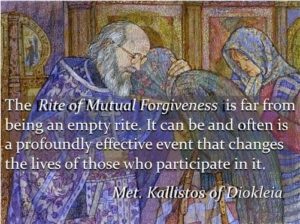
“…[On Forgiveness Sunday] after Vespers – after hearing the announcement of Lent in the Great Prokeimenon: “Turn not away Thy face from Thy child for I am afflicted! Hear me speedily! Draw near unto my soul and deliver it!”, after making our entrance into Lenten worship, with its special memories, with the prayer of St. Ephraim the Syrian, with its prostrations – we ask forgiveness from each other, we perform the rite of forgiveness and reconciliation….
One may ask, however: Why should I perform this rite when I have no “enemies”? Why should I ask forgiveness from people who have done nothing to me, and whom I hardly know? To ask these questions, is to misunderstand the Orthodox teaching concerning forgiveness. It is true, that open enmity, personal hatred, real animosity may be absent from our life, though if we experience them, it may be easier for us to repent, for these feelings openly contradict Divine commandments. But, the Church reveals to us that there are much subtler ways of offending Divine Love. These are indifference, selfishness, lack of interest in other people, of any real concern for them — in short, that wall which we usually erect around ourselves, thinking that by being “polite” and “friendly” we fulfill God’s commandments.
The rite of forgiveness is so important precisely because it makes us realize – be it only for one minute – that our entire relationship to other men is wrong, makes us experience that encounter of one child of God with another, of one person created by God with another, makes us feel that mutual “recognition” which is so terribly lacking in our cold and dehumanized world….”
Read the entire article Forgiveness Sunday by Fr. Alexander Schmemann
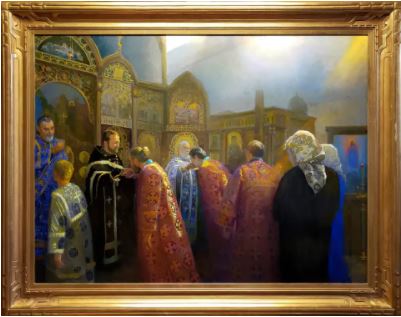
Preschool/Elementary:
“In order to begin fasting, there is one important condition that we have to meet first. Otherwise, our fasting will be meaningless, and turn into just another diet. The condition is this – you have to forgive those who have wronged you. And if you have wronged someone, you must ask them to forgive you. Why is this necessary?
Well, how can we begin a spiritual work if our hearts are weighed down with the rock of resentment? We fast so we can draw closer to God. Resentment doesn’t let us do that but instead always drags us down. So if we don’t begin with forgiveness, no matter what we give up when fasting, none of it will be helpful to us.
The day before the start of Great Lent, on Forgiveness Sunday, we have a special service at Church. It is called the Rite of Forgiveness, where we all ask each other’s forgiveness so that we can enter the holy days of Lent with clean hearts.
- “There once was a dove that kept moving from one nest to another. Each time, he found that he couldn’t stand the strong, unpleasant smell coming from the new nest and so he kept moving on. Finally, he went to an old, experienced dove to complain about the smell. The old dove listened and then said, ‘Pay attention. Do you see how while you keep going from one nest to another, nothing ever changes? The unpleasant smell isn’t coming from the nests but from you. If you want to make the world a better place, begin with yourself!’
Excerpted from the book Fasting from the Orthodoxy for Children series by Fr. Anthony Borisov, published by Exaltation Press.
Purchase and read this wonderful book about Saint Dionysios of Zakynthos
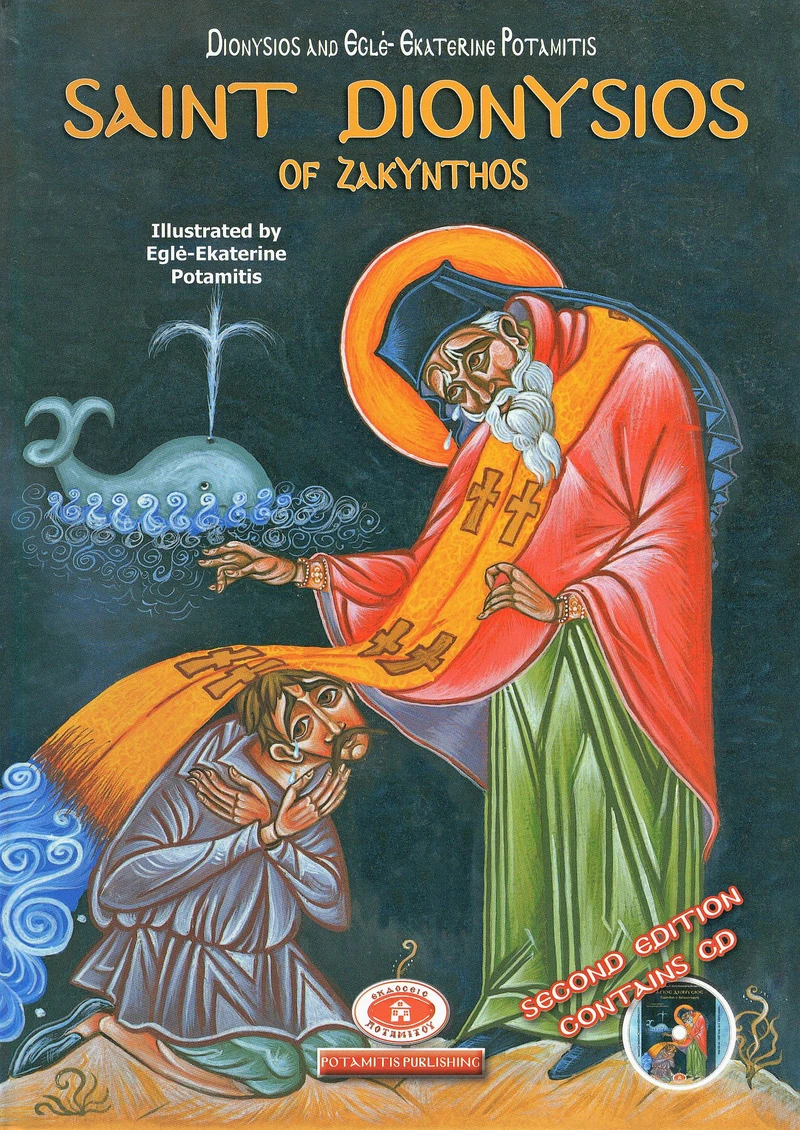
Middle/High School:
“The pattern of our relations towards our fellow men often appears to be the following: a person pleases us, we sincerely idealize him, we see nothing bad in him; and then suddenly, the person in question fails us in this or that, lies or brags, proves cowardly, or betrays us. So we start to reassess his value, we erase everything that we saw in him before (and which nevertheless really was there), and throw him out of our heart. I have long recognized that this is a wrong and sinful method of human relationship.
At the basis of such an attitude towards our fellow men lie two ideas of which we are not ourselves conscious:
- (1) I myself am untouched by sin; and
- (2) the person on whom I have bestowed my love is also sinless.
How can we otherwise explain our severe condemnation of others and our surprise if a good, kind, pious person commits a sin? Such are the conclusions I draw from sad reflections concerning my own heart, and from my conviction that I myself am capable of all kinds of sins.
And yet, the rule which should govern our attitude towards our fellows is to forgive endlessly, for we ourselves are in need of endless forgiveness.
It is essential not to forget that the good which we valued in someone is still there; as for the sin, it was always present, but we did not notice it.”
[The Diary of a Russian Priest, p130, Alexander Elchaninov]
Does what is described above happen to you in your relationships? What will you do going forward, now that you know the underlying subconscious ideas of why it is happening?
We all sin at times, and we need to repent (confess) and be forgiven, and also ask the ones we have offended to forgive us!
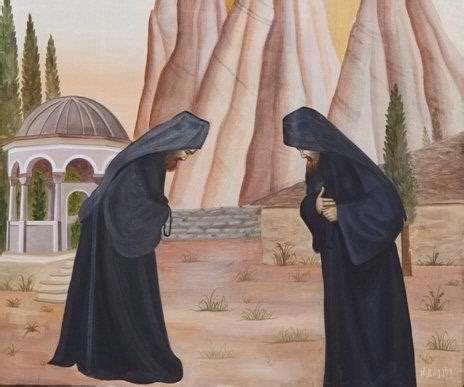
A Message from Maria Spanos
I am passionate about our Orthodox Christian faith and seek to help others learn as much as they can about it. My purpose here is to share online resources that help strengthen our relationship with Christ and bind us closer to His Church. I believe they are invaluable in learning about our precious Orthodox Tradition, and are a great aid for teaching family members, friends and others about Orthodoxy. ~Maria
Two of my favorite quotes:
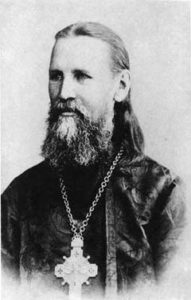 “A true Christian behaves in this life so that it may be a preparation for the future one and not only a life here below. In his actions, he does not think what will be said of him here but of what will be said there in heaven; he represents to himself that he is always in the presence of God, of the angels and all the saints, and remembers that someday they will bear witness of his thoughts, words, and deeds.” — Saint John of Kronstadt
“A true Christian behaves in this life so that it may be a preparation for the future one and not only a life here below. In his actions, he does not think what will be said of him here but of what will be said there in heaven; he represents to himself that he is always in the presence of God, of the angels and all the saints, and remembers that someday they will bear witness of his thoughts, words, and deeds.” — Saint John of Kronstadt
__________________________________________________________

“Of all the holy works, the education of children is the most holy.”
— St. Theophan the Recluse






